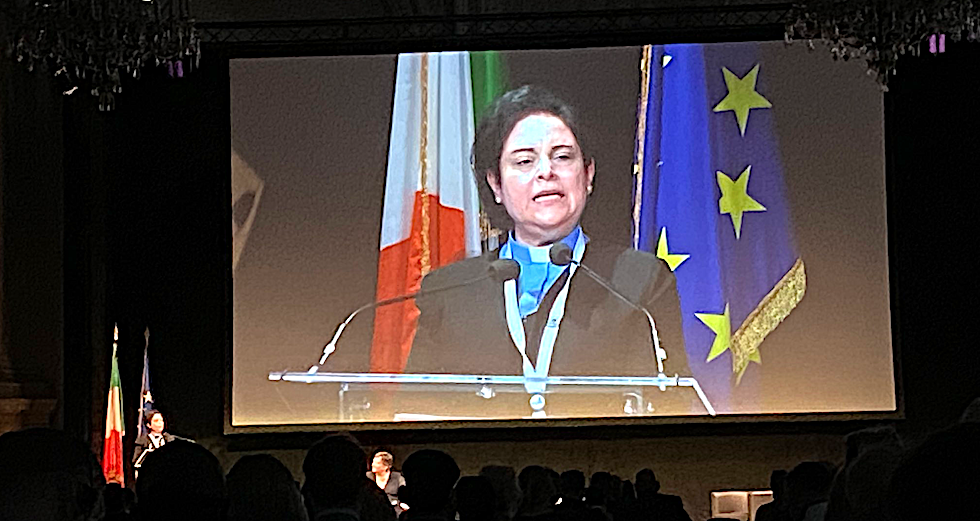Kassab challenges leaders to a time of healing
Posted on September 15, 2021 by Phil Tanis

“Today the world struggles with walls of separation among communities, families, nations, and religions. The last year and a half, the coronavirus opened our eyes to the need of healing, not merely physically but even in facing the new reality that we are captured with,” said Najla Kassab, president of the World Communion of Reformed Churches, in her address at the closing ceremony of the 2021 G20 Interfaith Forum (IF20) in Bologna, Italy.
The IF20 was held 12-14 September under the theme “Time to Heal: Peace among cultures, understanding between religions.” The IF20 offers an annual platform where a network of religiously linked institutions and initiatives engage on global agendas (primarily the United Nations Sustainable Development Goals).
Taking up the Fourm’s theme, Kassab asked, “The question remains, how can we join efforts towards healing? How do we recognize that it is a time of healing?” She noted several ways:
- It is a time of healing when we focus on human dignity.
- It is a time of healing when we work together for justice.
- It is a time of healing when we encourage our citizens to enjoy dialogue of life with other religions.
- It is a time of healing when we have a firm stand against any exclusive attitude or interpretation of any religion.
- It is a time of healing when religion impacts the lives of our younger generation.
- It is time of healing when women are involved in all levels in religious circles.
“Working toward healing calls for urgency, and this is why moving towards practical steps in healing has become inevitable and necessary,” she said. “Every delay in action means that more lives will be lost, more dreams will be assassinated.
“I say this, that we need an accountability barometer to measure our progress on issues and where we have created change. As religious leaders we are called to learn how to measure proceedings for our struggle, and encourage the young to journey with us and appreciate their enthusiasm and call for progress,” she said.
“Today is a time of crisis, but it is a kairos time; civil and religious players cooperating, where we are open to hear each other, to point where it hurts, to shift from generalizations to specifics and to move together for new imagination, where religions are essential contributors for healing and dignified life for all, not only in heaven but on earth,” she concluded.
The G20 Interfaith Forum builds on the vital roles that religious institutions and beliefs play in world affairs, reflecting their rich diversity of institutions, ideas, and values. These include interfaith and intercultural organizations, religious leaders, scholars, development and humanitarian entities, and business and civil society actors.
 World Communion of Reformed Churches
World Communion of Reformed Churches